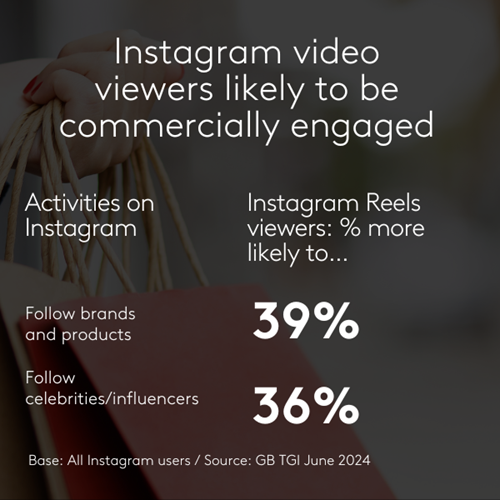How consumers engage with social networks is changing rapidly
Evolving social networking trends are creating new engagement opportunities for brands
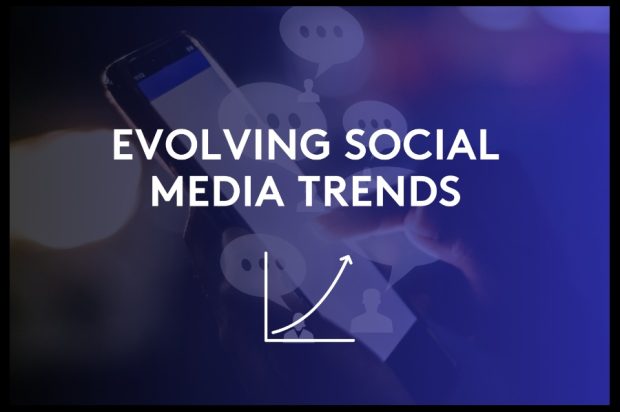
From engagement with news, to shopping, to use of video – there are many ways consumers are engaging with social platforms today that marketers need to understand in order to better promote brands within the social sphere. Here we use TGI data to take a look at some of the key ways in which social engagement is evolving.
Avoid assumptions about who is using social networks
In the fast moving world of social media behavioural patterns change constantly. In recent years we have seen the rise of TikTok among Brits, but also dips in regular usage for the likes of X/Twitter and Pinterest.
But it is not just platform use that is changing, but also who is using these networks.
For example, TGI reveals that four years ago Gen Z-ers were by some distance the generation using TikTok most. But today just as high a proportion of Millennials are using the platform as the profile shifts older. Sometimes our perceptions of who is using a particular platform can lag behind the fast-moving reality.
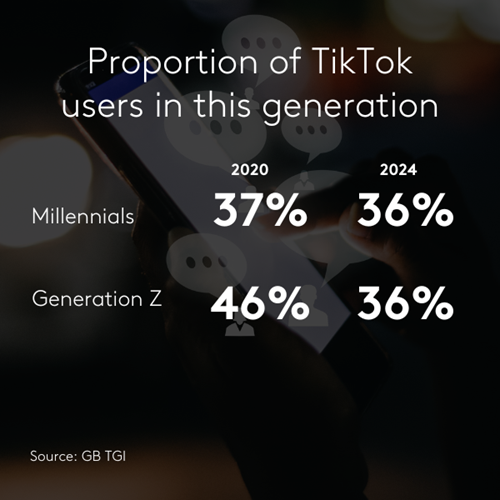
Fitting the right audience profile to the right platform
Nor should we make assumptions about similarities between users of different social platforms. Brands need to be conscious of differing user profiles by platform and evaluate which fit best with their brand.
For example, over a million TikTok users say they enjoy visiting theme parks, water parks or zoos when on holiday, making them 37% more likely to do so than the average adult.
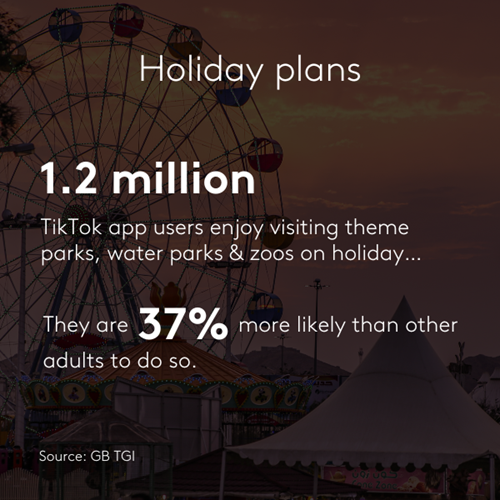
Meanwhile, Instagram users are 25% more likely than the average person intending to buy a car in the next two years to intend to finance their car purchase via a subscription plan.
Such differences can also extend to consumers’ relationship with advertising. Users of TikTok and Snapchat are particularly likely to feel positive about advertising, whereas Linkedin users are a harder group to appeal to with ads.
Evolving opportunities for news brands
No longer just a space to catch up with friends, consumers are increasingly using social networks as a means to get their news.
Whilst this can represent a challenge to the readership of news brands it also presents opportunities to optimise content across specific platforms and understand sponsorship opportunities.
For example, those who say they often find out about breaking news and events through social media first are 23% more likely than the average adult who reads a newspaper every day to read The Mirror.
Significant engagement with shopping on some platforms
It is important brands have a presence in those spaces where consumers are actively seeking to make a purchase. TGI reveals that over one in five adults (22%) who use TikTok are actively using the platform for shopping, with the figure for Instagram lower (14%).
The profiles of those shopping on each platform are also different, with those who use Instagram for shopping more likely to claim they are comfortable on their present income compared to those who shop on TikTok.
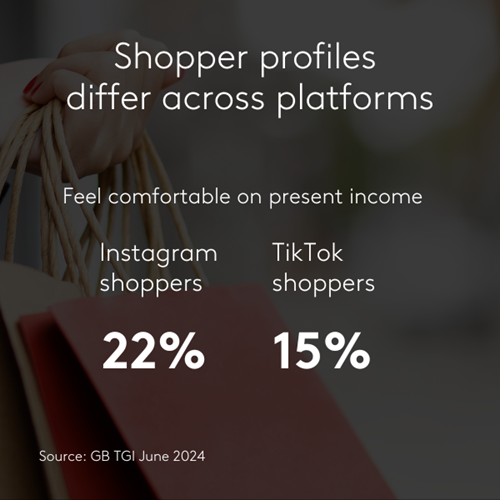
Embracing the value of video
Video is also a burgeoning area for social networks. 40% of Instagram users say they use the platform to watch Instagram Reels.
TGI reveals that those who watch Reels videos are particularly likely compared to other Instagram users to say they follow brands and influencers.
This makes them of particular value to brands seeking to engage audiences through social.
